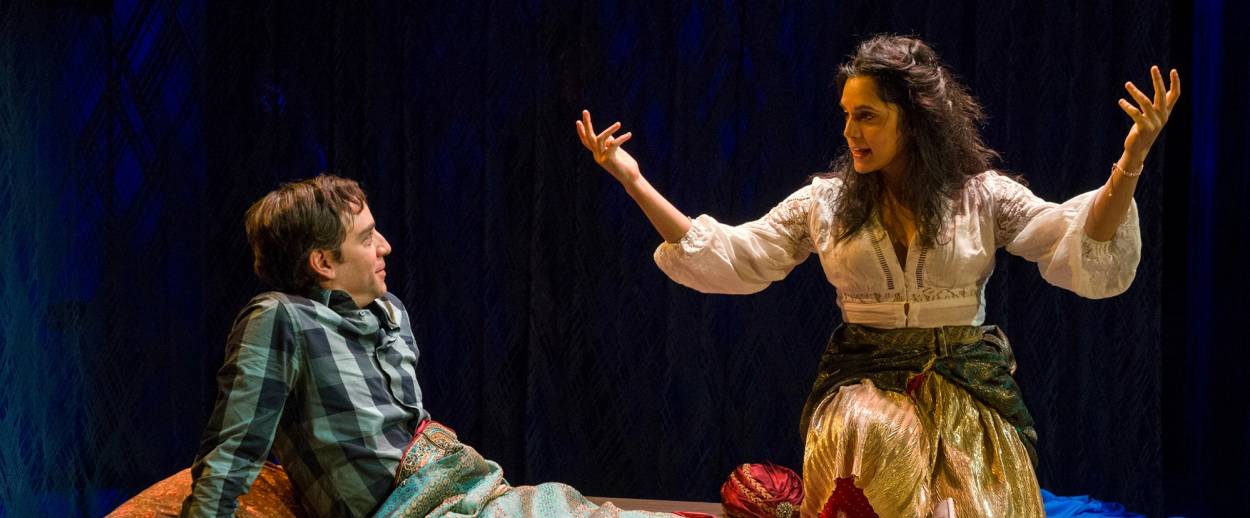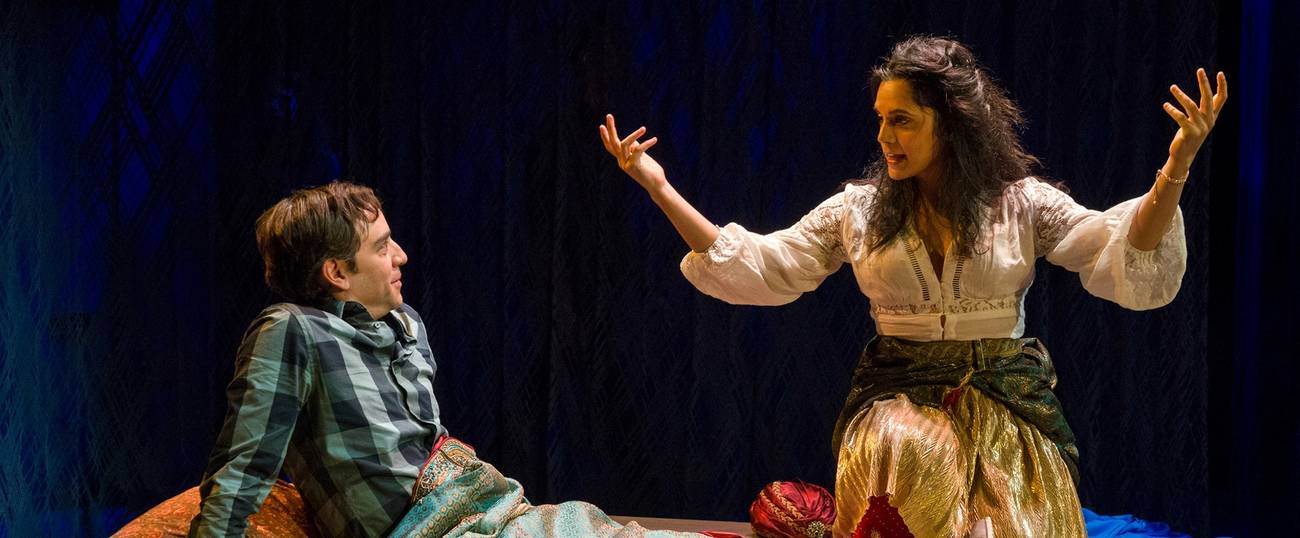In Ambitious New Play, Scheherazade Tells of the Israeli-Palestinian Conflict
‘One Thousand Nights and One Day’ never fails to be riveting, even when it is frustrating




An ambitious new musical has opened off-Broadway, titled One Thousand Nights and One Day (and, in the spirit of Angels in America playing a few blocks away, wordily subtitled “a postmodern musical fantasia”). A jam packed ninety minutes spans millennia, continents, different versions of reality. The program describes the setting as “mostly a mythological medieval Persia and New York City in the present and near future, the piece goes everywhere,” and that is an understatement.
The initial story is familiar, and fairly straightforward. The show begins with the tale of Scheherazade, the young woman wed to a murderous king who indefinitely delays her own execution by regaling her husband with cliffhangers. As the show progresses, however, her tales bleed over into another world— present-day New York. It is the story of the romantic relationship between two young people, Dahna and Alan. They meet at Columbia University, when Dahna, a Palestinian-American, gets into an argument with Alan Dershowitz about BDS. Alan (not Dershowitz) is smitten.
From there, realities twist through subway tunnels (sometimes literally), and the characters enter literary history, Arabian tales, and the Gaza Strip—to violent effect. (Those uncomfortable with anti-Israel perspectives will likely have problems with the show.)
While in some ways the characters are vibrant (librettist Jason Grote has a fine skill with dialogue), they are also frustratingly trope-laden. Dahna is torn between her traditional family and her relationship with Alan. Alan is (stop me if you’ve heard this one before) a leftist Jew determined to prove he’s one of the “good” ones, who has fantasies of martyrdom to bring peace to the Middle East. While well-intentioned, he also has a savior complex, and his attraction to Dahna is at least partially rooted in her Palestinian identity.
Of course One Thousand Nights isn’t about the Palestinian-Israeli conflict as much as it’s about Scheherazade. It is—at least in theory—about the stories we tell, and why we tell them. However, as the show progresses,it sags under its own weight of reality-warping themes; It explicitly insists to us, through Scheherazade, the importance of story, but its own threads at times become frayed. In particular, there is a macabre twist foreshadowed early on that doesn’t seem to fit narratively or thematically, yet is central to the plot.
But One Thousand Nights never fails to be riveting, even when it is frustrating. It is an impeccably crafted production, tightly and dynamically directed by Erin Ortman. The cast, led by Ben Steinfeld and Sepideh Moafi, are supremely talented, especially in the face of such demanding material.
Their mettle is especially tested vocally, to excellent effect. The show’s composer is Marisa Michelson, best known for her score for Tamar of the River, a 2013 musical reinterpretation of the story of Judah and Tamar. Once again, her music here is complex, haunting, and exquisite. (Her next work will be a retelling of the story of Noah’s ark from his wife’s perspective.)
This production of the Prospect Theater Company is clearly full of stars on the rise, and it’s worth the bumpy ride for its transcendent moments, visually and musically.
One Thousand Nights and One Day runs through April 29th at the ART/NY Mezzanine Theater.
Gabriela Geselowitz is a writer and the former editor of Jewcy.com.